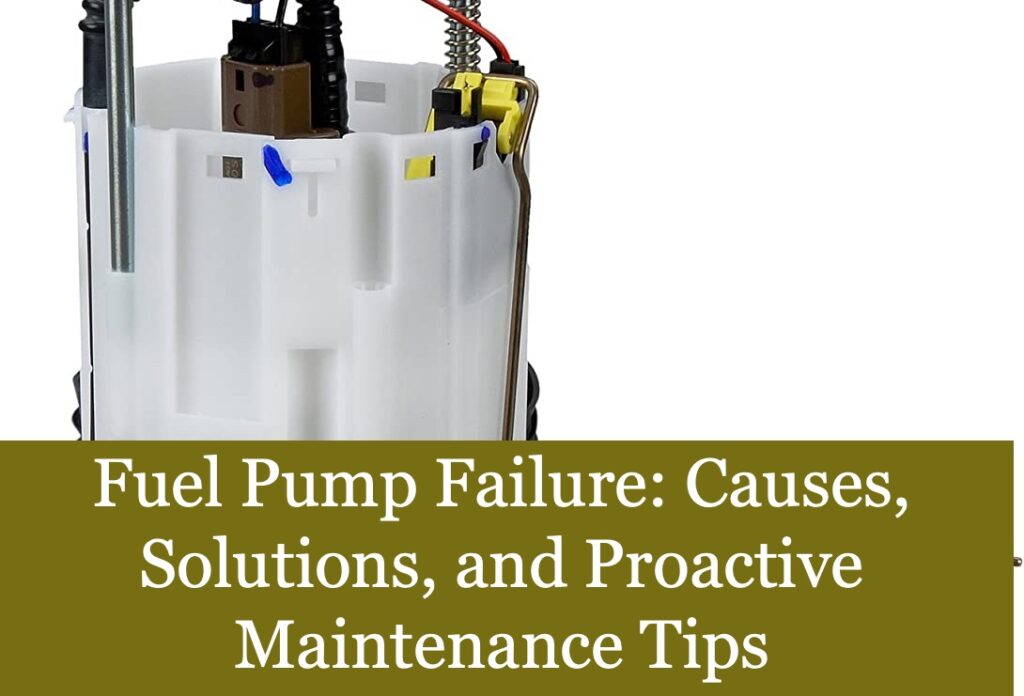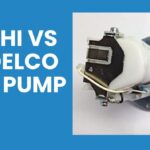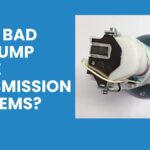The fuel pump is arguably a critical part of any automotive unit like a car. Without a better fuel delivery system, the engine starves fuel which affects engine health. Admit it or not, the fuel pump fails now and then without even noticing you. But do you know what causes fuel pump failure?
There are several significant causes of fuel pump damage. Among them, the age of the pump or completed extra mileage could be the major culprit. But unfortunately, a newly installed pump can be damaged after running a few mileages. This may happen due to extreme dirt and dust.
However, we’ll show you the most possible causes of why this unwanted matter happens repeatedly and costs you. Also, this useful guide will disclose some effective tips to prevent this and possible solutions. Let’s not let your car go down.
What Causes Fuel Pump Failure: Possible Reasons
Fuel pump defection for many reasons. Some encounter problems due to the oldest system while some notice premature failure due to contamination. Now, we’ll show you the possible reasons why fuel pumps get damaged earlier and how to get rid of them.
Reason #1: Damaged Fuel Pump Relay
A defective pump relay is one of the significant reasons behind a broken or inefficient fuel pump. We all know how important role the pump relay plays in providing the required power to the pump. It acts like a step-up transformer which provides additional power to the pump and activates it.
However, when it fails to work properly, the pump suffers many problems and sometimes becomes completely inoperable as the relay is fully engaged with the pump. Also, if it is idle, the engine will take longer to start and the engine performance will suffer.
Solution: When you witness or encounter something that goes along with the symptoms of a bad pump relay, call your trusted technician so that he can perform the test. It’s the best practice to replace the entire relay.
Reason #2: Older Unit Or Longer Mileage
We would attribute the second reason to the old pump. An old pump will not deliver as fast and solidly as a good, fresh pump. It’s normal for it to behave like this due to its older age. Generally speaking, experts recommend changing a fuel pump every 50k to 100k miles.
Afterward, it is no longer able to perform at such a high level. So if you have been using your car’s fuel pump for a long time, you understand that aging is responsible for its poor performance.
Solution: However, if you realize that it has been too long since you installed the pump, change it and install a new pump as soon as possible. This will get you back to your expected performance.
Reason #3: Excessive Water In The Fuel Tank
Now we will highlight the reason behind fuel pump damage that many people take for granted and that is excess water in the fuel tank. Normally the fuel tank will have 100% fuel so that no water enters the engine and the engine will perform properly.
But if there is water in it then the water mixed with the fuel ratio will enter the engine which is harmful to the engine. It gradually rusts the fuel pump which disrupts the entire system.
Solution: In this case, you need to check the fuel tank thoroughly. Or, test the fuel to see if there is any water present. If the water level is high, it is best to empty the entire fuel tank and clean the fuel pump. Then pour the new fuel into the fuel tank to bring the performance back.
Reason # 4: Using The Wrong Gas Or Fuel
The next reason we listed as the cause of fuel pump damage is using the wrong or low-grade fuel. Low-quality fuel produces various particles and damages the pump. Because it contains substances that are harmful to the engine and other parts.
For vehicles that demand high-quality fuel but you use regular fuel, it is normal that you will witness repeated fuel pump failures. Also, it produces poor combustion and spark that prevents the engine from starting quickly. This leads to frequent fuel changes, which is your ultimate financial loss.
Solution: As a solution, we and other experts recommend using high-quality fuel. Also, it is best for the pump and engine to use the fuel that the manufacturer recommends.
Reason #5: Contamination
As time passes, various types of heavy metals and particles grow inside the fuel pump. These accumulate and eventually contaminate the fuel. This fuel gradually forms a coating of dirt in the fuel tank, which subsequently renders the engine inoperable, starting from the fuel pump. Hence, it is best if you change the fuel regularly and use high-quality fuel.
Solution: Clean the fuel tank with a quick fuel change if you encounter this issue. And if it is not clean enough then go change the whole fuel tank.
Reason #6: Irregular Or Poor Maintenance
We are lazy when it comes to maintaining our beloved car. We love our car very much but do not love to do proper maintenance. As a result, the vehicle got trapped with some unusual problems. The fuel pump is a small but critical part that should be maintained properly. Wittingly or unwittingly we care less about it.
Consequently, it damages gradually by taking the wrong fuel or catching up with sludge. Thus, the entire systems face trouble which in turn causes significant damage to the fuel tank and then the fuel pump and engine.
Solution: You should check and inspect your fuel pump now and then i.e. every week so that you ensure the system works fine. Also, by doing this you can determine whether it needs to fill or not.
Reason #7: Clogged Fuel Filter
Jammed or blocked filters are one of the alarming causes of pump failure. It happens due to using the wrong gas or keeping it unclean for a long time. Also, sludge buildup, rusty fuel tanks, residue from low-profile fuel, water, moisture, condensation, excessive off-road driving, etc. are the main culprit behind filter clogging.
Experts recommend replacing the fuel filter after crossing 30k miles. But the standard changing interval is between 30K and 150K miles.
Solution: Inspect the fuel filter deeply and if you find it jammed, take the necessary measurement. Wash thoroughly the filter. Otherwise, change the filter entirely.
Reason #8: Running With Lower Fuel Consistently
Many individuals make mistakes to save fewer bucks. They ignore it until 90-100% of the fuel is gone. But it shouldn’t be done if you want to increase the fuel pump’s longevity. However, lower fuel makes the fuel pump dry and prevents entering the adequate fuel.
Solution: The only solution to this problem is putting high-quality fuel at regular intervals. Never let your fuel tank without fuel or less than 40% fuel.
How To Prevent Fuel Pump Failure: Expert Tips That Could Be Savior
Now, we’re going to tell you some secret tips that nobody exposes. If you dedicatedly follow them, you’ll not end up with a collapse or financial loss. Ultimately, by following these effective tips, you’ll save your fuel pump and money while increasing longevity.
Tip #1: Fill The Fuel Tank When Required:
This is the most advisable tip that every car owner should focus on. If you really want to save your hard-earned money to replace the fuel pump repeatedly, it’s the best solution to always fill the tank when necessary. If you want to maximize the user experience, you should change the fuel when there are ¼ parts left in the tank.
Tip #2: Change the Old fuel
This is another potential tip that saves you and your fuel pump for a long. Changing the old fuel is a wise choice who wants to keep the pump tuned and top-performing.
Tip #3: Keep the fuel filter and tank clean
Many car owners avoid focusing on it. They just drive their car and put in the gas when required. They forget or don’t have enough time to maintain and clean it properly. As a result, sludge can build up easily and filter and the tank gets rusty which damages the fuel pump. Therefore, if you want to keep it good, don’t ignore cleaning it regularly.
Tip #4: Replace the old one with a high-quality pump
The average or typical fuel pump tends to damage fast. This is why install a high-quality pump even if it costs a little bit more. It is better to spend one time than repeat. High-quality fuel is durable, long-lasting, efficient, and fits perfectly.
Conclusion
Among all other components in a vehicle, fuel is the most considerable component that helps to boost car performance. It delivers fuel and contributes to keeping the air-fuel ratio right. However, it can be damaged for various reasons. But knowing what causes the fuel pump failure frequently is vital.
Electrical failure, old version, faulty fuel filter, defective solenoid, and poor maintenance are the main culprits behind this issue. This ultimate guide covers everything related to the cause of faulty fuel pumps and some expert tips to maximize lifespan.
More resources:







